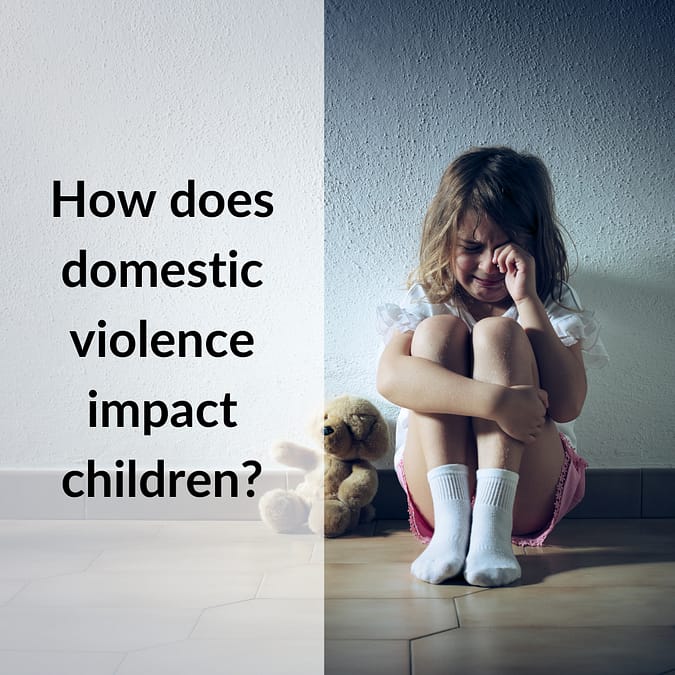 |
In homes with domestic violence, children are negatively impacted at all stages of their development in the key areas of life: physical, mental, behavioral, and relational. |
Trauma from childhood adversities, including domestic violence, can impact children’s bodies as well as their minds. Not only can physical impacts range from gastrointestinal, cardiovascular, musculoskeletal, respiratory, and dermatological symptoms, but domestic violence can even damage children’s DNA and shorten their lifespans, according to studies by Duke University.
Symptoms related to children growing up with domestic violence
This list, compiled by the Office of Women’s Health, of the U.S. Department of Health & Human Services, shows just some of the symptoms children who grow up with domestic violence are at risk for developing throughout their growth cycles:
|
|
|
Parents and caregivers impact how their children cope with domestic violence
Often, during and after experiences of domestic violence, caregivers can be exhausted and distracted and they may not be emotionally or physically available or responsive to take care of their children. During these crucial formative years and into the teens, the parent or caregiver may not provide the critical nurturing, comfort and reinforcement children need.
While handling their own trauma, the abused or the abusing adults may be more irritable, neglectful, and unable to understand or see their children’s needs. In turn, all of this impacts children’s ability to flourish into adulthood and face adversity throughout life with greater resilience.
Post-traumatic Stress Disorder (PTSD) in children growing up with domestic violence
Growing up in an environment with domestic violence, one of the most damaging impacts that could occur is PTSD. Studies have concluded that experiencing domestic violence is enough trauma to induce post-traumatic stress disorder (PTSD) in children. Neuroscientist Tanja Jovanovic, director of the Grady Trauma Project, a research institute based at Emory University, states the risk for PTSD from growing up with domestic violence is high “because it’s a betrayal of someone who is supposed to be a protector.”
Psychologist Abigail Gewirtz says domestic violence can feel scarier than war. Gewirtz is the director of the Institute of Translational Research in Children’s Mental Health at the University of Minnesota. She says domestic violence is “one of the most terrifying forms of violence because it happens in a place which is supposed to be safe…Children are totally powerless, especially very young children. They are totally dependent on their parents.”
The impact of domestic violence on babies in the womb
There may be the misconception that a baby in the womb can’t be impacted by the violence a mother faces during pregnancy, but research points to a strong correlation between abuse of a mother during pregnancy and trauma symptoms in babies after birth. These include nightmares, startling easily, being bothered by loud noises or physical contact, among others.
Moms facing domestic violence before and during pregnancy are also up to 6x more likely to develop postpartum depression, which negatively impacts health and parenting outcomes as well as triggering cognitive and behavioral problems in their children.
Children of domestic violence have more negative life outcomes
Without help from a caring adult or improvement in the home, these children are more likely to experience negative life outcomes. For example:
The good news for children impacted by domestic violence
As many as ten million children and adolescents witness violence between their parents or caregivers each year. Though this number is astounding, there are ways that we can assist children growing up with domestic violence.
Raising awareness, learning more about childhood domestic violence, and sharing the impact of domestic violence on children will aid in decreasing it.
To learn more about helping a child growing up with domestic violence, consider taking the CHANGE A LIFE online program, developed by the world’s leading researchers and endorsed by UNICEF and Children’s Mercy Hospitals. You can be THE ONE- that adult who provides some nurturing and listening and sharing to have a positive influence on a child.



